Recently, I had the opportunity to take a look back at my time with Sunderland, especially the encounters with Newcastle, and many more things on the What the Falk podcast. Below is a summary of what we talked about, but you can listen to the whole interview by clicking here.
“The situation at Sunderland when I arrived”
For me it was an easy decision to go to Sunderland. I knew that any chance for me to manage in the Premier League would likely come about because a team was not in the best form (at this point in time they were propping up the table with 1 point from 7 games). I knew going there was a risk and plenty of people warned me about it. However, I was well aware that if I could convince the players of my playing philosophy, we could achieve the objectives. I was able to do this at Brighton.
My worries began a week after I started training with them when I found out just how many problems there were at the club. These were things that people outside of football would find difficult to understand, although for a better understanding, they are shown clearly on the “Sunderland Till I Die” documentary.
“The first few matches with Sunderland”
For the first half of my first match as manager against Swansea, we put up a good showing, we were organised more than anything, but the cracks began to appear in the second half. However, we won the second match, the derby against Newcastle.
My first two weeks in charge were all about laying the foundations, but during the week of training leading up to the Newcastle game, you began to see an improvement, and we focused so hard on winning this game. And it paid off. In the match, the players demonstrated what we had worked on in training, and the first goal even came from a move we had practised the week before. Borini, who scored the second goal, showed me a lot in 20 minutes.
The third match was also particularly important, we played 45 minutes with 9 men, our goalkeeper got injured and we lost 1-0 against Hull City thanks to an own goal. At half time I had to make a lot of changes and even then, we didn’t concede any more, we even had a chance to equalise with 9 players. This reinforced our idea of what we had to do defensively for the rest of the season. We won the fourth match 1-0 against Manchester City, who went on to win the league.
“The transformation of Lee Cattermole into a key player”
First of all, let’s make it clear that this change was down to Lee. I had to do my bit, but if he didn’t buy into it then it wouldn’t have been possible to change in his mentality. In a previous interview, Lee explained that it was his most enjoyable year as a footballer, thanks to the responsibility we gave him.
I sat him down and told him that I wanted him to do the “dirty” work that one player has to do in every team. As a manager, you need to be able to play every player in their best position and give them the role best suited to them.
“The 0-3 against Newcastle”
It was January, we were in the semi-finals of the FA Cup, Marcos Alonso had joined the team, we had found the best position for every player, Johnson was playing on the right, Bardsley was running like a man possessed and won the penalty, even Altidore had his best game against Newcastle. We were on form and people began to take note.
